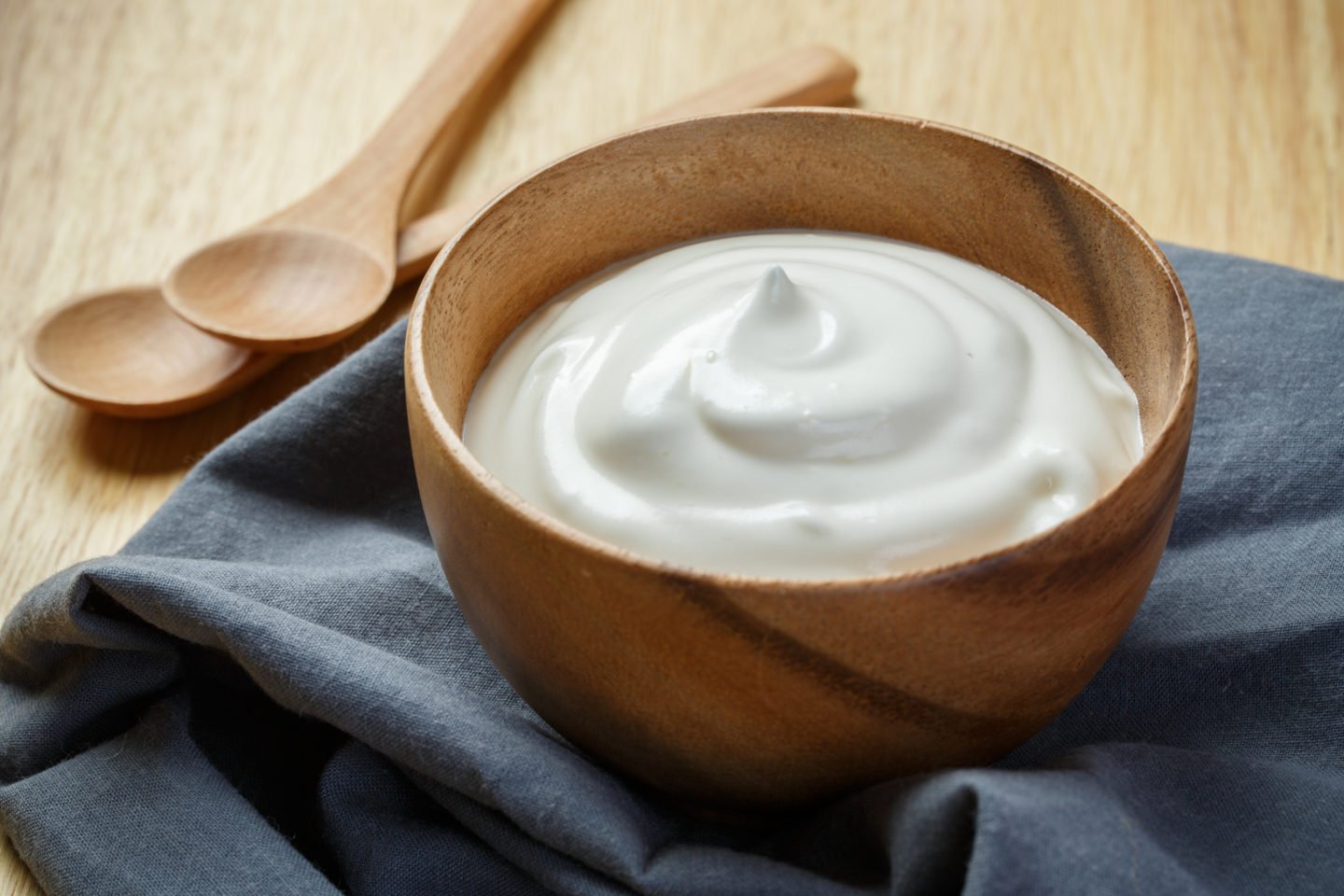Acid reflux has a love-hate relationship with yogurt. While yogurt is a delicious, healthy snack, choosing the right type of yogurt is crucial if you have acid reflux disease or gastroesophageal reflux disease. Regular yogurt contains around 3.3% fat, high enough to trigger heartburn symptoms. However, you can take low-fat yogurt, which has only 0.4% fat.

Some yogurts are also enriched with probiotics, which help digestion and overall gut health. Choosing yogurt with no added sugar is also beneficial, as too much sugar can slow digestion. Consuming yogurt also soothes the digestive tract, preventing any inflammation or irritation.
This article will discuss everything you need to know about yogurt and acid reflux: the types of yogurts that help and worsen acid reflux, their effect on health, and the dosage.
Table of Contents
Is Yogurt Good for Acid Reflux?
When individuals learn about the pH of yogurt, this is the first question that comes to mind.

Low-fat, low-sugar yogurt can ease the symptoms of acid reflux disease. It's easy to digest and contains nutrients that help with the rest of the digestive process. However, if you consume high-fat, sugary yogurt, trouble begins.
Yogurt is acidic, with a pH level ranging from 4.4 to 4.8. Fortunately, it has an alkalinizing action.
When shopping for yogurt, keep in mind that the type of yogurt determines whether it is helpful for acid reflux or not. Yogurt with a lot of fat or sugar is difficult to digest. As a result, the brain sends signals to the stomach to release more acid. As a result, acid reflux may worsen.
Furthermore, eating yogurt with a lot of fat and sugar might weaken the upper stomach layer and the esophageal sphincter. As a result, it prevents the valve from closing correctly. As a result, as the acid in the stomach increases, it also rises back to the esophagus, aggravating acid reflux.
Similarly, consuming flavored or plain yogurt with acidic elements such as citrus fruits might raise stomach acidity and disturb its function. You may reduce the acidity of the yogurt by adding alkaline-forming fruits. Mango, Banana, and Papaya are popular additions.
If you're lactose intolerant, you'll also have gastrointestinal issues. Yogurt causes bloating and burping in lactose-intolerant people. More acid is eventually discharged into the stomach, resulting in acid reflux symptoms.
Best Yogurt for Acid Reflux
Non-fat Greek Yogurt

Greek yogurt has twice the amount of protein, half the sugar, and a quarter of the carbohydrates of conventional cow's milk yogurt. One hundred grams of greek yogurt contains 0.4 grams of fat, 10 grams of protein, and 110 milligrams of calcium.
Because there are no FDA standards on the ingredients in Greek yogurt, verifying the components and protein amounts is essential when purchasing it. In choosing yogurt, you should look for variants with live culture or live bacteria. Avoid those that have extra proteins or thickeners such as whey concentrate or modified corn starch.
Icelandic Skyr Yogurt
When it comes to the yogurt market, Skyr is Greek yogurt's main competitor. Skyr, which is the Icelandic version of cultured dairy, is produced using milk and live active bacteria, then filtered several times. Icelandic yogurt has the thickest consistency and is ideal for snacking.
Six ounces of Skyr provides 19 grams of protein, 20% of the daily required calcium, 25.5% of the necessary phosphorus, and 0 grams of fat.
Soy Yogurt
If you have lactose intolerance, soy yogurt is the one for you. Soy yogurt is made with a soy milk base from soybeans thickened with living cultures. It does not contain any dairy and cholesterol and is a favorite among consumers who avoid animal protein.
Aside from the clean, light taste, you will enjoy the benefits of this yogurt. One hundred grams of soy yogurt contains only 1.8 grams of fat, 3.5 grams of protein, and ample amounts of calcium, magnesium, iron, and other vitamins, which boost digestive health.
Coconut Yogurt
Coconut milk has a thicker texture than whole milk or heavy cream but provides a lighter-textured yogurt. While coconut milk is highly delicious, coconut yogurt contains lower protein and most coconut yogurt available in stores contain added sugar and other sweeteners. As a result, this yogurt has a sour taste without sugar that some people find unpleasant.
Yogurt Drinks
Everybody loves yogurt drinks. It’s a staple snack in Asian homes, contains live bacteria and high calcium levels, and is incredibly delicious. They also have lower fat than plain yogurt.
Worst Yogurt for Acid Reflux
Regular Yogurt

While plain or regular yogurt is more widely available than other healthier options, a serving contains 8 grams of fat. They also have lesser amounts of protein. So although they contain high levels of calcium that act as an antacid, they’re not the best option.
Goat Milk Yogurt
While goat milk yogurt is smoother, creamier, and has a richer taste than plain yogurt, it also has a higher fat content. Every serving contains 9.1 grams of fat, 130 calories, with only 6.9 grams of protein.
Sheep Milk Yogurt
Another yogurt with a rich texture is sheep milk yogurt. However, a serving contains 12 grams of fat and 190 calories.
Australian Yogurt
Australian yogurt is unstrained and is not as thick as Greek yogurt. However, a serving contains 10 grams of fat.
How To Prevent Acid Reflux
To keep heartburn and stomach acid at bay, you must maintain a GERD diet. Start with replacing acidic foods with alkaline foods, and avoid fatty foods including nut butter, spicy food, full-fat dairy product, fried food, carbonated drinks, and caffeinated drinks.
You can add more fermented foods to your diet as they contain probiotics that promote easy digestion of stomach content and overall digestive health. When it comes to milk, choose low-fat milk and alternatives like almond milk, soy milk, and oat milk.
Related Questions
Yogurt contains lactose. If you have lactose intolerance, eating yogurt will cause stomach discomfort, acid production, belching, and even diarrhea.
Low-fat yogurt like Greek yogurt, skyr, and soy yogurt is your best option if you suffer from any heartburn symptoms.
Full-fat yogurt causes the lower esophageal sphincter to relax and not close fully, causing some of the acid to escape the stomach, resulting in heartburn.

Leave a Reply